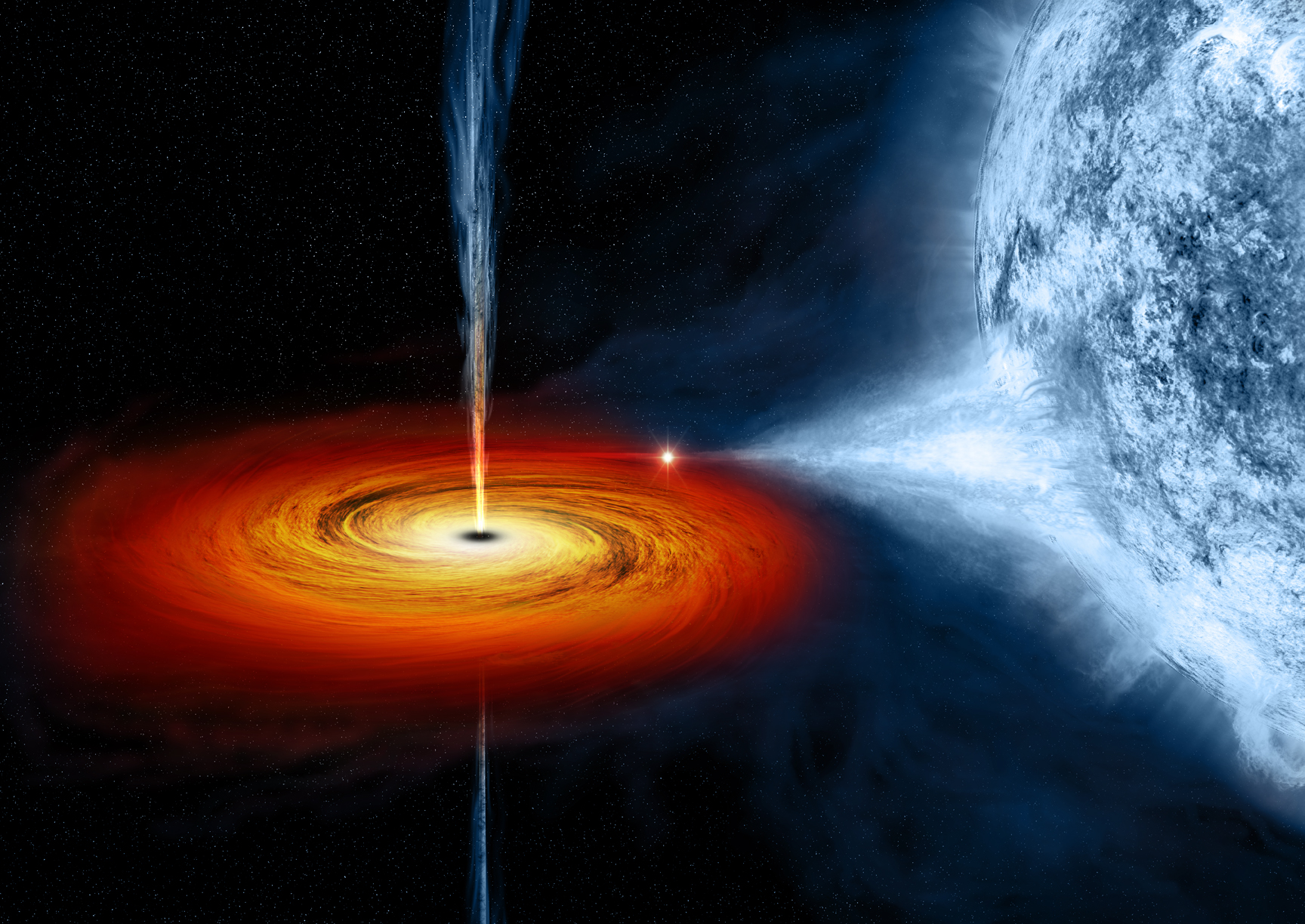Black holes are some of the most terrifying subjects in the realm of science. Not only do they offer a glimpse into the raw power that is present in the universe, they also invoke undefinable terror in those who imagine themselves getting trapped by one. This is why the most recent black hole that scientists have discovered could be the stuff of nightmares based on just how fast it devours everything around it.
As taglines go, fastest-growing anything can already be one of the most terrifying prospects in the world, but when it is related to a black hole, it can be downright bloodcurdling. This is exactly what scientists at the Australian Nation University recently discovered. According to a press release, the black hole could fit 20 billion suns and it’s growing at one percent every one million years.
That might not seem like such a fast growth rate, but context is everything. Something this massive growing at that pace for that period of time is a threatening concept. Just to paint a picture of what this black hole is really like an astronomer from the university’s Research School of Astronomy and Astrophysics, Dr. Christian Wolf provided a scenario that anyone can understand.
"This black hole is growing so rapidly that it's shining thousands of times more brightly than an entire galaxy, due to all of the gases it sucks in daily that cause lots of friction and heat. If we had this monster sitting at the centre of our Milky Way galaxy, it would appear 10 times brighter than a full moon. It would appear as an incredibly bright pin-point star that would almost wash out all of the stars in the sky," Dr. Wolf explained.
Consequently, it would also make life untenable because of all the radiation it spits out. Fortunately, as Space.com points out, the black hole is so far away that it took an estimated 12 billion years for the astronomers to detect the light that it released.



 Neuren Pharmaceuticals Surges on U.S. Patent Win for Rare Disorder Drug
Neuren Pharmaceuticals Surges on U.S. Patent Win for Rare Disorder Drug  Trump Signs Executive Order to Boost AI Research in Childhood Cancer
Trump Signs Executive Order to Boost AI Research in Childhood Cancer  Astronomers have discovered another puzzling interstellar object − this third one is big, bright and fast
Astronomers have discovered another puzzling interstellar object − this third one is big, bright and fast  Trump Administration to Launch Autism Initiatives Targeting Acetaminophen Use and New Treatment Options
Trump Administration to Launch Autism Initiatives Targeting Acetaminophen Use and New Treatment Options  SpaceX Prioritizes Moon Mission Before Mars as Starship Development Accelerates
SpaceX Prioritizes Moon Mission Before Mars as Starship Development Accelerates  FDA Pilot Program Eases Rules for Nicotine Pouch Makers
FDA Pilot Program Eases Rules for Nicotine Pouch Makers  NASA Partners with Katalyst to Save Swift Observatory with Innovative Docking Mission
NASA Partners with Katalyst to Save Swift Observatory with Innovative Docking Mission  Tabletop particle accelerator could transform medicine and materials science
Tabletop particle accelerator could transform medicine and materials science  Cogent Biosciences Soars 120% on Breakthrough Phase 3 Results for Bezuclastinib in GIST Treatment
Cogent Biosciences Soars 120% on Breakthrough Phase 3 Results for Bezuclastinib in GIST Treatment  SpaceX’s Starship Completes 11th Test Flight, Paving Way for Moon and Mars Missions
SpaceX’s Starship Completes 11th Test Flight, Paving Way for Moon and Mars Missions  NASA Astronauts Wilmore and Williams Recover After Boeing Starliner Delay
NASA Astronauts Wilmore and Williams Recover After Boeing Starliner Delay  Trump and Merck KGaA Partner to Slash IVF Drug Costs and Expand Fertility Coverage
Trump and Merck KGaA Partner to Slash IVF Drug Costs and Expand Fertility Coverage  Eli Lilly’s Inluriyo Gains FDA Approval for Advanced Breast Cancer Treatment
Eli Lilly’s Inluriyo Gains FDA Approval for Advanced Breast Cancer Treatment  Neuralink Plans High-Volume Brain Implant Production and Fully Automated Surgery by 2026
Neuralink Plans High-Volume Brain Implant Production and Fully Automated Surgery by 2026 


























